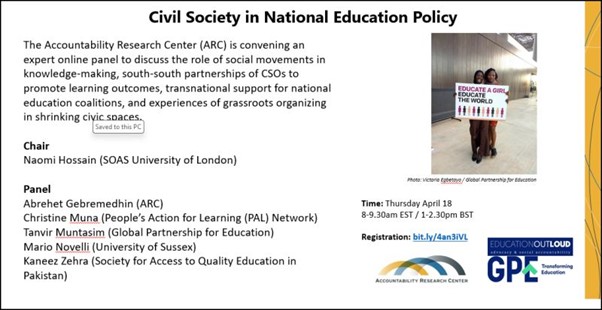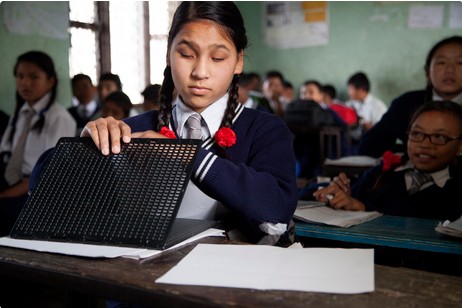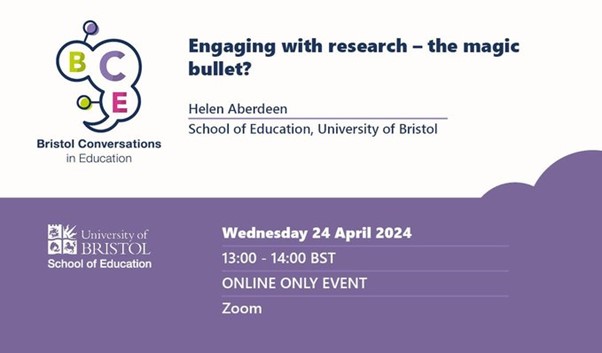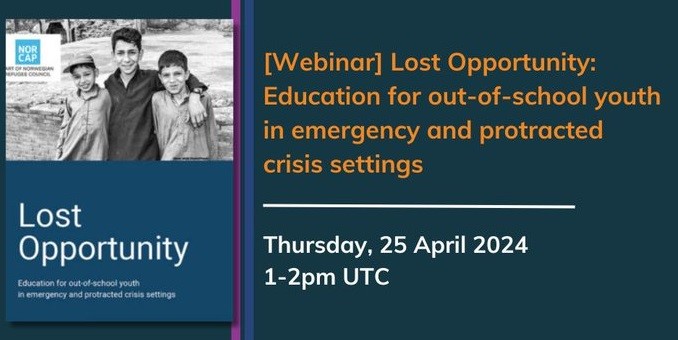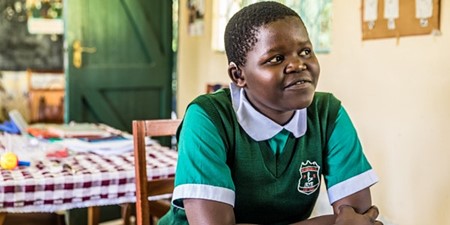
24 May 2022, 12:00 – 13:15 BST
A joint University of Bath Department of Education, Institute for Policy Research (IPR) and Girls’ Education Challenge (GEC) launch event.
Join us for the launch of a new policy brief which critically explores the ways that learning using an unfamiliar language of instruction, such as English, influences girls’ educational experiences and outcomes.
Sustainable Development Goal 4 (SDG4) calls on all governments to ensure that, by 2030, all children complete a basic education that is inclusive, equitable and of high quality.
While research has explored the ways that factors such as gender and the language-of-instruction separately present a challenge to children’s enrolment, learning and outcomes in education, there is an evidence gap about how the influences of gender and language come together, specifically how girls’ are affected by learning in an unfamiliar, dominant language, such as English. This has clear implications both for efforts towards SDG4 and for SDG5, which calls for gender equality and the empowerment of women and girls.
A new policy brief published by the University of Bath Institute for Policy Research (IPR) and the Girls’ Education Challenge (GEC), edited by Dr Lizzi O. Milligan and Dr Laela Adamson (University of Bath), addresses this gap by bringing together evidence from a range of projects and country contexts.
This brief was initiated through an ESRC-funded project that took a mixed-methods approach to the study of girls’ experiences in Rwandan upper primary and secondary schooling where the language of instruction is English. While presenting findings from this Rwandan study, this brief begins to address the broader evidence gap by stretching more widely and including findings from other research projects in Rwanda, Tanzania, and Ghana.
The collaboration with the GEC also enables this brief to draw on data from across their portfolio and learn from their extensive experience of supporting girls’ education in multilingual contexts.
At this launch event we’ll hear from the brief’s editors and contributors who will discuss their research findings, and the ways that learning in an unfamiliar language impacts girls’ educational access, experiences, and outcomes.
Speakers include:
- Dr Lizzi O. Milligan is a Reader in the Department of Education at the University of Bath. Her research focuses on issues of social and epistemic justice and educational quality in low-income countries.
- Alicia Mills is the Senior Portfolio Advisor for Somalia, Kenya, Malawi and Ethiopia on the GEC.
- Aline Dorimana is a student and Aloysie Uwizeyemariya is a Lecturer at the University of Rwanda. They are both Research Associates on the ESRC-funded project: A case study of girls’ education experiences in English medium Rwandan basic education, and took a leading role in the school-based data generation in four schools across four districts of Rwanda.
- Fadimata Walet Inorene is an Education Technical Advisor within the CARE USA Education and Adolescent Empowerment Team. She has nearly 20 years of experience working at various levels for different INGOs, bringing expertise in girls’ education, gender mainstreaming, governance and accountability mechanisms.
- Amira Salama is an academic English instructor at Nile University, Egypt, and President of Africa ELTA (Africa English Language Teachers Association).
About the GEC
The Girls’ Education Challenge (GEC) was launched by the UK’s Foreign, Commonwealth and Development Office in 2012 as a 12-year commitment to reach the most marginalised girls in the world and is the largest global fund dedicated to girls’ education.

